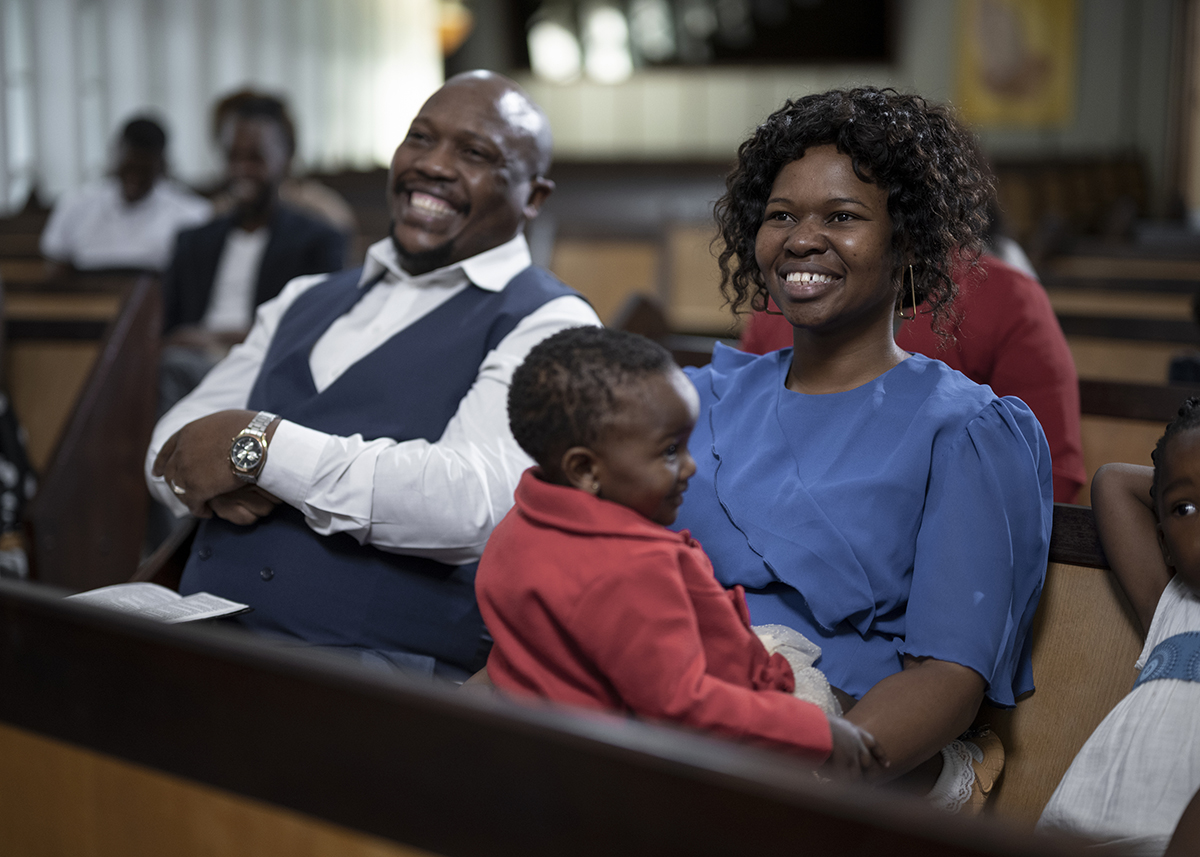Faith-Based Connection to Strong Mental Health for the African American Community
The connection between faith and emotional well-being is firmly held, particularly across the African American community. Historically, a strong connection to a higher power has sustained African Americans, who often face health disparities and trauma.
“I firmly believe that the faith-based community serves as a refuge for individuals, providing them with solace and strength. It is a place that nurtures the well-being of the mind, body, and spirit. Throughout history, faith communities have been pillars of support, guiding individuals toward spiritual growth and inner peace. I am inspired by the empowerment and sense of community that the faith-based organizations offer to those in need,” says Robin Kinloch, First Lady at Triumph Church, a large and robust faith community with tens of thousands of members in nine locations across southeast Michigan.
Members at Triumph Church are more likely to benefit from services through partnerships with organizations like the Michigan chapter of the National Alliance on Mental Illness (NAMI), Detroit Wayne Integrated Health Network (DWIHN) or Oakland Community Health Network because of a high level of trust in their pastor and church community.
“People seek information and resources from sources they trust, especially in the mental health space. It is crucial to have a trusted voice guiding individuals through their mental health journey. In our efforts to support mental health advocacy, we aim to be that trusted source for our community,” Kinloch says. “Under the leadership of Rev. Solomon W. Kinloch, Jr., we strive to provide reliable information and resources to help individuals navigate their mental health challenges.”
As a member of the Community Advisory Board at Corewell Health, Kinloch highlights the correlation between mental health challenges and physical symptoms, emphasizing the importance of understanding the connection between mind and body. She says that by recognizing this relationship, we can better navigate toward efficient care, such as local advocacy groups and crisis centers tailored to support mental health conditions. This deeper understanding can significantly impact how we approach mental health issues within the community.
“It’s crucial to recognize the growing importance of mental health, especially in the current landscape where people are paying closer attention to it,” she says. “As we navigate these changes, it’s evident that COVID-19 has provided valuable insights into prioritizing mental well-being. This newfound awareness is helping us guide individuals toward the necessary mental health support they may require.”
Triumph Church is dedicated to promoting overall well-being and active care of the whole body, including mental health. One of the ways the church emphasizes this is through a focus on eating well as part of a commitment to nurturing the mind, body and spirit.
Each year the church commits to 40 days of prayer and fasting to incorporate clean eating practices to further enhance the spiritual journey. “We strongly believe that activating your faith fully involves nurturing all the components that God has blessed us with,” Kinloch says.
Teaching and learning to better understand mental health
Faith-based support motivates and offers internal peace and hope, leaving a feeling of promise. This is important to the African American community, says Kinloch.
“As we reflect on the challenges faced by the African American community, it is crucial to acknowledge the disproportionate effect of disparities that exist within our community. From the justice system to education, from the workplace to housing, there are hurdles that others typically do not have to endure to the extent experienced within the African American community,” Kinloch says.
“These combined disparities can often lead to feelings of defeat and even depression. However, it is important to remember that these challenging seasons are not permanent. Triumph Church stands as a beacon of hope in our community, serving to remind us that these struggles do not define us and that better days are ahead. Pastor Kinloch, through his teaching, places great emphases on the need to work together to support one another, uplift our community and strive toward a future where equality and justice prevail for all,” she adds.
“It is essential to ensure that individuals maintain hope, receive encouragement, and feel supported. Our collaboration with Forgotten Harvest plays a pivotal role in nourishing the community, all rooted in love and respect. Through our collective efforts, we yield meaningful impact and stand by those who require assistance,” she says.
Spiritual guidance…and referrals to mental health professionals
At Triumph Church, individuals can seek counseling and spiritual guidance whenever needed.
“Our faith leaders are always available to listen and support, and, while we provide spiritual guidance, we always strongly encourage individuals to seek additional support from mental health professionals. Well-being is a top priority, and we want to ensure individuals have access to the resources needed. Sometimes people just don’t know where to go,” Kinloch says.
Triumph Church has extensive reach, allowing connection for the African American community and other communities with trusted professionals in the mental health space for further assistance.
“We do not take our influence for granted,” Kinloch says. “We are committed to being responsible and continuously learning to better utilize that influence for the greater good. By connecting people to the resources they need, we serve as the trusted starting point in empowering others.”
Learn more about Triumph Church. Visit triumphch.org.

